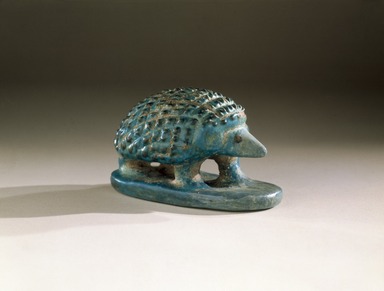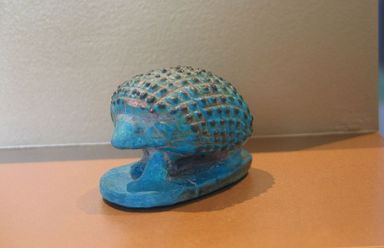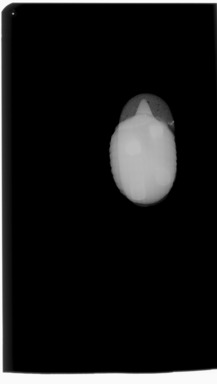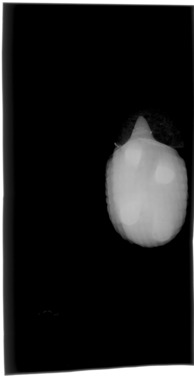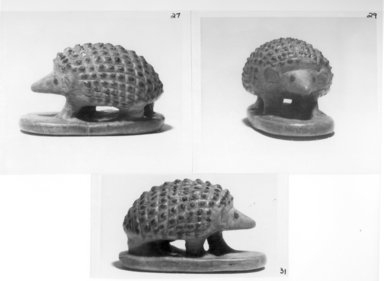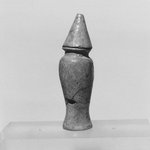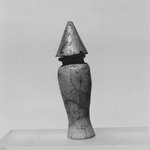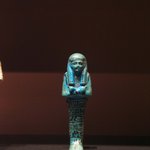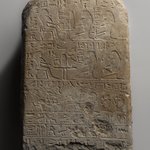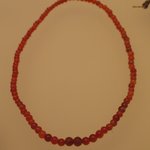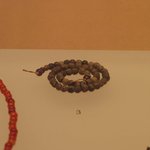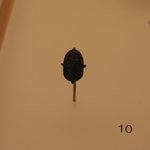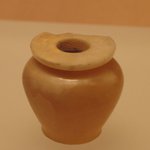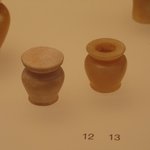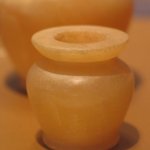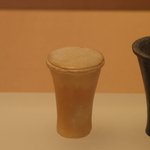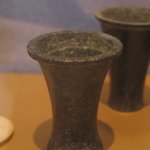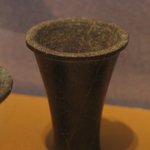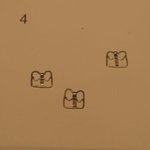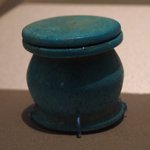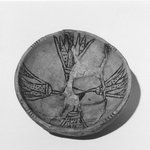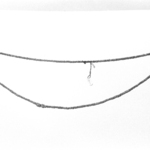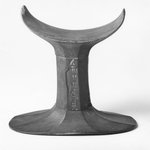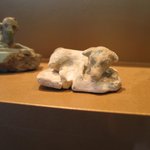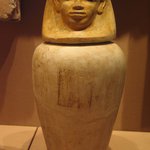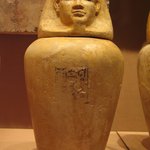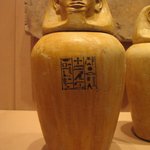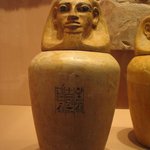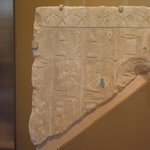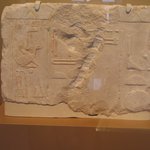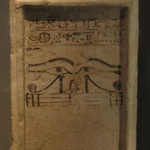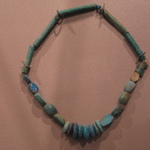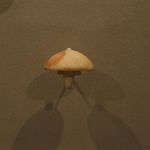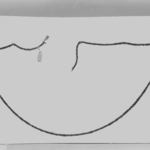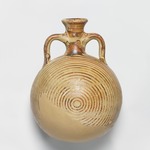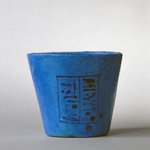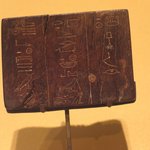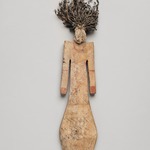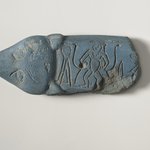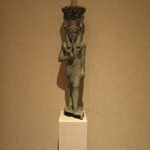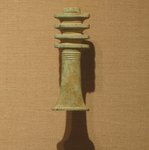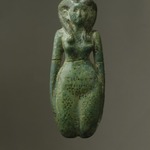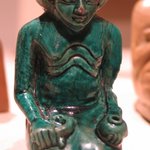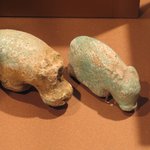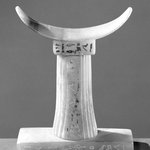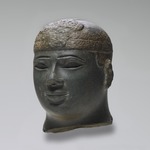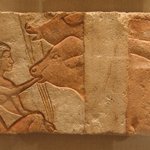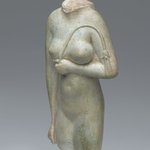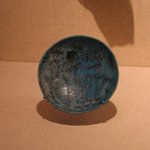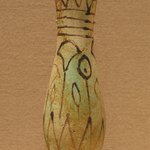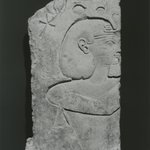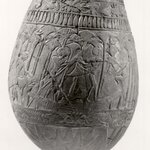Hedgehog
Egyptian, Classical, Ancient Near Eastern Art
On View: Old Kingdom to 18th Dynasty, Egyptian Galleries, 3rd Floor
When food is scarce, hedgehogs retreat into underground dens for long periods, to re-emerge only in times of abundance. The Egyptians associated this behavior with rebirth and thus wore amulets in the form of hedgehogs or left figures such as this one in tombs. Also, according to the Ebers Medical Papyrus of the early Eighteenth Dynasty, hedgehog spines, when ground up and mixed with fat or oil, cured baldness.
MEDIUM
Faience
DATES
ca. 1938–1700 B.C.E.
DYNASTY
Dynasty 12 to early Dynasty 13
PERIOD
Middle Kingdom
DIMENSIONS
1 5/8 x 1 5/8 x 2 13/16 in. (4.2 x 4.1 x 7.1 cm)
(show scale)
ACCESSION NUMBER
65.2.1
CREDIT LINE
Charles Edwin Wilbour Fund
CATALOGUE DESCRIPTION
Blue-green faience hedgehog with black spots on elliptical base, both left legs slightly advanced and modeled freely in the round. Back is scored in grid pattern and bumpy to simulate quills.
CAPTION
Hedgehog, ca. 1938–1700 B.C.E. Faience, 1 5/8 x 1 5/8 x 2 13/16 in. (4.2 x 4.1 x 7.1 cm). Brooklyn Museum, Charles Edwin Wilbour Fund, 65.2.1. Creative Commons-BY (Photo: Brooklyn Museum, 65.2.1_SL1.jpg)
IMAGE
overall, 65.2.1_SL1.jpg. Brooklyn Museum photograph, 2010
"CUR" at the beginning of an image file name means that the image was created by a curatorial staff member. These study images may be digital point-and-shoot photographs, when we don\'t yet have high-quality studio photography, or they may be scans of older negatives, slides, or photographic prints, providing historical documentation of the object.
RIGHTS STATEMENT
Creative Commons-BY
You may download and use Brooklyn Museum images of this three-dimensional work in accordance with a
Creative Commons license. Fair use, as understood under the United States Copyright Act, may also apply.
Please include caption information from this page and credit the Brooklyn Museum. If you need a high resolution file, please fill out our online
application form (charges apply).
For further information about copyright, we recommend resources at the
United States Library of Congress,
Cornell University,
Copyright and Cultural Institutions: Guidelines for U.S. Libraries, Archives, and Museums, and
Copyright Watch.
For more information about the Museum's rights project, including how rights types are assigned, please see our
blog posts on copyright.
If you have any information regarding this work and rights to it, please contact
copyright@brooklynmuseum.org.
RECORD COMPLETENESS
Not every record you will find here is complete. More information is available for some works than for others, and some entries have been updated more recently. Records are frequently reviewed and revised, and
we welcome any additional information you might have.
Is this what I think it is? So cute!
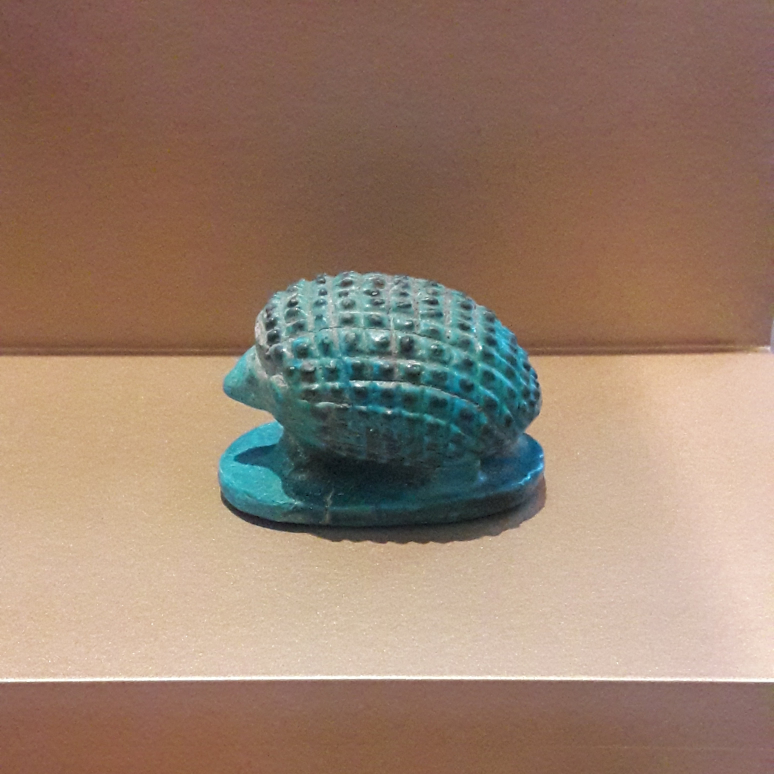
If you’re thinking hedgehog, you’re right! The Egyptians associated the hedgehog with rebirth because they retreat into underground dens for long periods only to re-emerge in times of abundance.
Because of this association, the ancient Egyptians wore amulets in the form of hedgehogs and left figurines of them (like this one) in tombs where rebirth of the deceased in the afterlife was supremely important.
